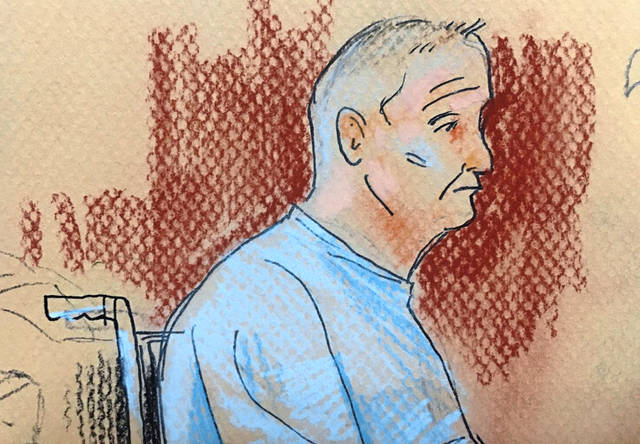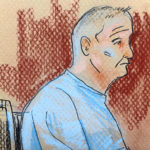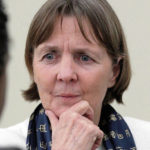Some have called Judy Clarke the “attorney for the damned.”
Among her clients: Ted Kaczynski, the Unabomber; Dzhokhar Tsarnaev, the Boston Marathon bomber; and 9/11 conspirator Zacarias Moussaoui.
Now, she’s representing Robert Bowers, accused Tree of Life gunman.
Clarke, a federal public defender, has defended many of the most notorious names in their efforts to avoid the death penalty. She has won in all but one — if life in federal prison is what’s considered winning.
“The part that is not reflected on her resume is the human dimension,” said longtime friend Laurie Levenson, a professor at Loyola Law School in Los Angeles. “It’s how much effort she puts into gaining the trust of her clients, learning about her client as a person, relating to the extent she can to her client’s situation.”
She tries to find the humanity in those who commit inhumane acts, Levenson said.
“She represents the person that everybody else hates,” she said.
Clarke was ordered appointed to Bowers’ defense team late last month after Bowers, 46, requested the counsel of a federal public defender specializing in death penalty cases.
Bowers faces a 44-count federal indictment in connection with the Oct. 27 killing of 11 worshippers in Squirrel Hill’s Tree of Life synagogue, which housed three congregations. Thirty-two of the charges against him could carry the death penalty.
At a conference in Los Angeles in 2013, Clarke spoke of how she became intimately familiar with the death penalty when she represented Susan Smith, the South Carolina woman who in 1994 drowned her two sons, 3-year-old Michael and 14-month-old Alexander.
In her speech, Clarke said she was “sucked into the black hole, the vortex” of capital cases.
“I got a dose of understanding of human behavior, and I learned what the death penalty does to us,” she said. “I don’t think it’s a secret that I oppose the death penalty.”
With Clarke as counsel, Smith avoided the death penalty and is serving life in prison.
She has succeeded in all but one of her worst-of-the-worst cases: Tsarnaev, the convicted Boston Marathon bomber, was sentenced by a federal jury to death in May 2015. The case remains under appeal.
William Weinreb of Boston was the prosecutor on that case. He said Clarke is known for her dedication to getting to know her clients — to humanize them and spare them the death penalty.
“Her main successes have been to persuade the government to accept a plea to drop the death penalty,” said Weinreb, now a Boston-based attorney with the law firm Quinn Emanuel. “I don’t think she has taken too many cases to trial.”
Though the prosecution in the Boston case essentially won, securing a conviction and death sentence for Tsarnaev, Weinreb said there are no winners or losers.
“I don’t think anybody celebrates or cheers at the prospect of having to put somebody to death for a crime,” he said. “The prospect of the death penalty can never repair the harm to the victims or their families.”
What makes her successful, friends and colleagues have said, is an ability to connect with her clients and, in turn, show a jury their humanity.
“During a time when the world was focused on my brother as a monster, she was able to see him as a human being and provide him with that kind of human contact and emotional support at a time when he had very little sympathy from anyone,” said David Kaczynski, who made the difficult decision to turn in his older brother after he suspected him in a series of bombings that killed three people and injured 23 others between 1978 and 1995.
Robert Cleary prosecuted Ted Kaczynski and said he got to know Clarke well during the course of the trial.
“It’s fair to say Mr. Bowers is going to be getting the very best representation possible,” said Cleary, now a New York-based attorney for the law firm Proskauer Rose. “Judy is an incredibly gifted lawyer — smart, dedicated and relentless in her preparation.”
Clarke shies away from attention — she actively dislikes it, Levenson said of her friend, whom she met during the Kaczynski trial when she was a CBS legal commentator. She said Clarke is more comfortable visiting her clients in maximum security prisons than she is in the spotlight.
The next in-person status conference in Bowers’ case is March 19.
“It’s not a job. I don’t even think it’s a career,” Levenson said. “This is the way she can contribute to make society better.
“I don’t think it’s about status,” she continued. “It’s certainly not about money. I think she feels that she has a calling to make sure that there’s justice even in the toughest cases.”
The Associated Press contributed to this report. Megan Guza and Tom Davidson are Tribune-Review staff writers. You can contact Megan at 412-380-8519, mguza@tribweb.com or via Twitter @meganguzaTrib. You can contact Tom at 724-226-4715, tdavidson@tribweb.com or via Twitter @TribDavidson.













